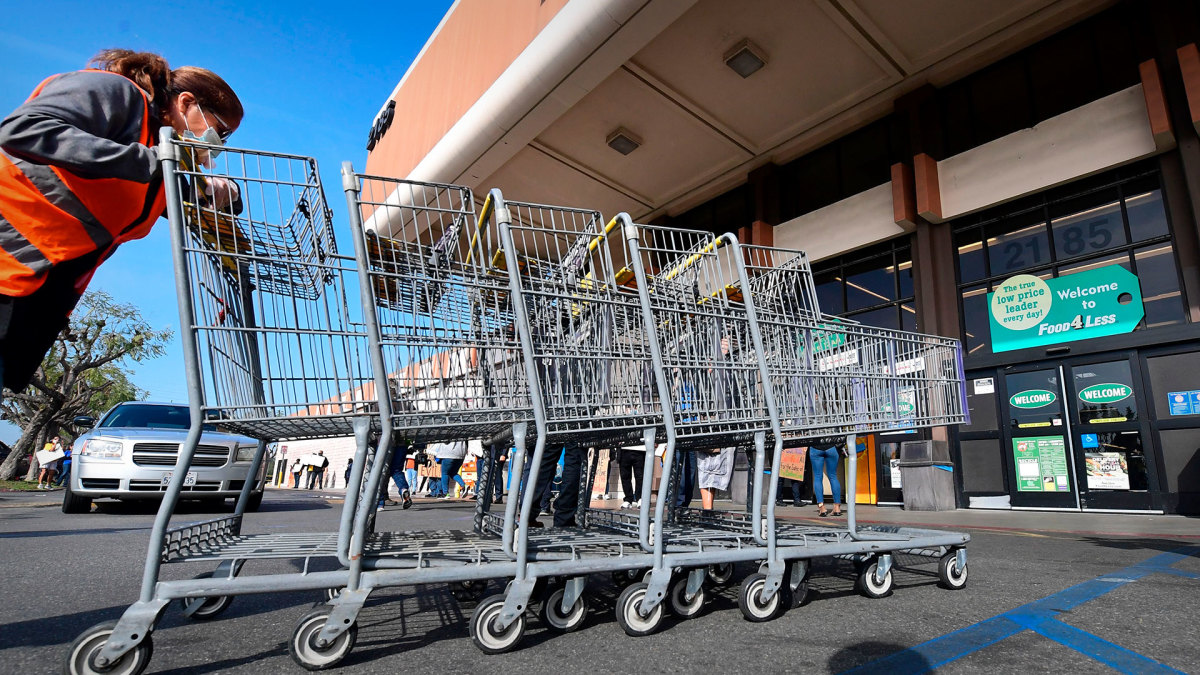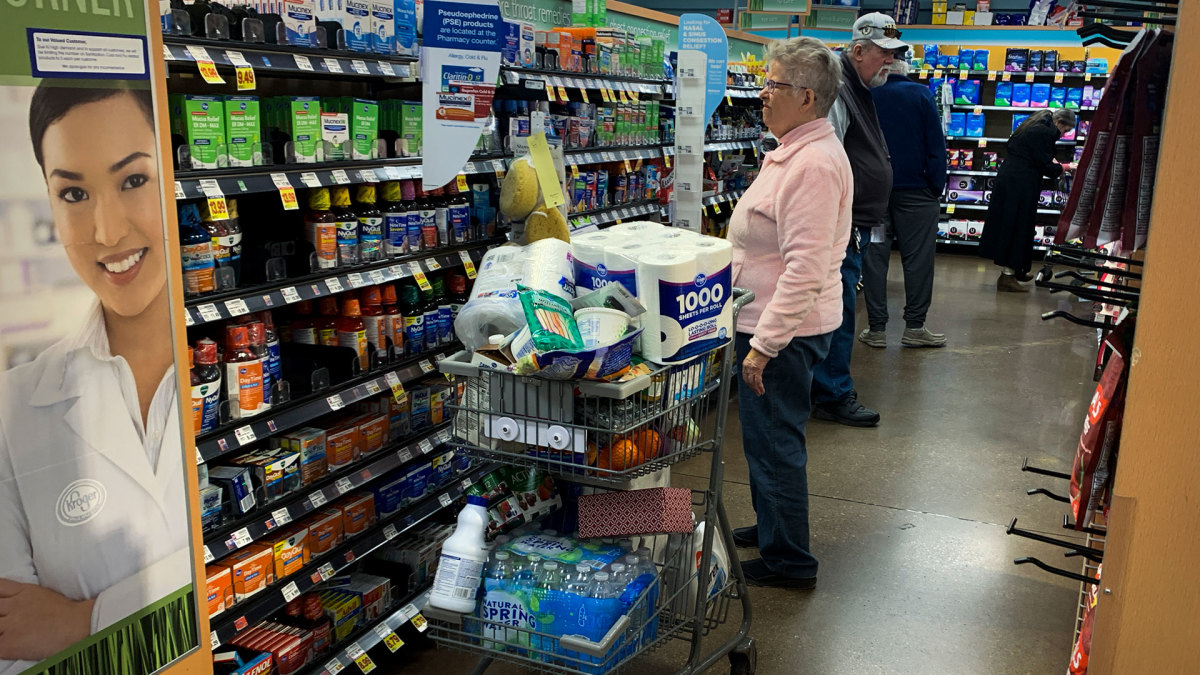
Few consumers want to use self-checkout.
From the consumer side, the technology forces customers to do work that store employees usually do, Aside from people who don't like making small talk with a clerk, and folks who are in a rush, it's hard to see who benefits from self-checkout.
DON'T MISS: Another popular retailer shutting dozens of stores
Stores like self-checkout because it eliminates workers. At a time when retail wages have been rising, not paying people to scan your purchases appeals to companies trying to cut costs.
The problem from the corporate side is that self-checkout comes with increased theft. Some of that is accidental and some falls in the "we're not sure" category, but when you take people out of the equation, shrink — the industry term for retail theft — goes up.
That's something Kroger (KR) -) Chief Financial Officer Gary Millerchip addressed during his company's second-quarter-earnings call.
"Shrink increased during quarter two, primarily due to rising theft and organized retail crime," he said.
"We are implementing initiatives to mitigate the financial impact, including increased security and new technology solutions, but would expect shrink trends will continue to be a challenge for the remainder of the year,"
Those increased security and new technology solutions may not make customers very happy.

Image source: Jeremy Hogan/SOPA Images/LightRocket via Getty Images
Kroger uses AI to prevent theft
Kroger forces customers to use self-checkout by having fewer traditional checkout aisles. So some people who prefer to have a human scan their items will go to self-checkout even if it makes them uncomfortable.
Now, Kroger plans to employ artificial intelligence as a monitor. Cameras will watch the self-checkout lanes and AI will examine how customers scan their goods.
A company called Everseen Visual AI will virtually examine the video, flagging any discrepancies. The AI flags not only incidents of customers stealing but also abnormal patterns, and it will alert store personnel.
So, if a customer does not efficiently scan and bag their items — even if they're not stealing — they could face the indignity of a store employee coming to examine their bags.
The technology alerts customers when an item has not been scanned. When a second item is missed, store personnel are alerted.
"Kroger chiefs have claimed that such technology has helped reduce over 75% of errors at the self-checkout," The Sun reported.
Kroger may offer Walmart and Target a blueprint
Self-checkout benefits stores, not customers, and this new technology works with an assumption of guilt. That appears to be the new reality in the grocery space, and Walmart and Target (TGT) -) seem likely to follow Kroger in adopting this sort of technology.
Kroger wants to eliminate both theft and honest error, but this technology does so in a way that benefits the company while subjecting honest customers — the vast majority of its customers — to tech that could flag them for inappropriate behavior even if they have done nothing wrong.
That's not going to stop Kroger, which has brought the technology to more than 1,700 stores and plans to deploy it across the entire chain (2,800 stores in 35 states). The problem is that like self-checkout, the technology works in a way that's good for the company, customer comfort and concerns be damned.
"We're already reporting fewer errors at self-checkout. Not only does this translate into reduced retail shrink, it also gives us a much more accurate view of what stock is going out of the store," Kroger's senior manager of asset protection, Chris McCarrick, said in a case study conducted by Lenovo, which is one of the technology providers.
Retailers have shown that they're willing to place their needs over customer preferences, so this technology, or at least versions of it, seem likely to make their way to Walmart, Target, and other retailers.
It works and that's clearly more important to the industry than the fact that it's going to result in false positives and more hassling of people who did not (or at least did not intend to) do anything wrong.







